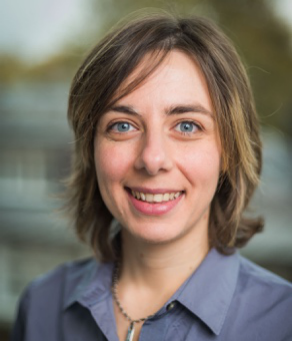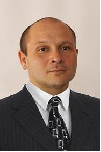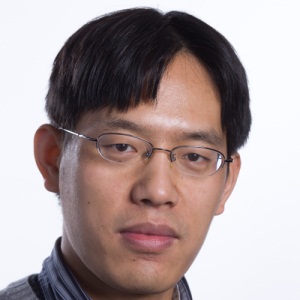Speakers 2022
Keynote Speaker I

Prof. Yannis Manolopoulos
Faculty of Pure & Applied Sciences, Open University of Cyprus, Cyprus
Title: Status and opportunities in scientific impact forecasting
Abstract: Significant efforts have been made to quantify scientific impact and identify the mechanisms that influence its evolution. The first step is the identification of what constitutes scholarly impact and how it is measured. In this direction, published approaches focus on future citation count prediction, on fitting the distribution of citation accumulation, on modelling the decay of attention received by papers, on accurately identifying award winners, hot research topics or academic rising stars. A plethora of features have been contemplated as possible influential factors such as preferential attachment, communicative memory and cultural memory. Assorted machine and neural learning methodologies have been adopted to ensure timely and accurate estimations. Here, we provide an overview of the field challenges, as well as a taxonomy of the existing approaches to identify the open issues.
Bio: Yannis Manolopoulos is Professor and Vice-rector of the Open University of Cyprus. He has been with the University of Toronto, the University of Maryland at College Park, the University of Cyprus and Aristotle University of Thessaloniki, where he served as Head of the Department of Informatics. He has also served as Rector of the University of Western Macedonia in Greece and Vice-Chair of the Greek Computer Society. His research interest focuses in Data Management. He has co-authored 5 monographs and 8 textbooks in Greek, as well as >300 journal and conference papers. He has received >13000 citations from >2000 distinct academic institutions (h-index=52). He has also received 5 best paper awards from SIGMOD, ECML/PKDD, MEDES (2) and ISSPIT conferences and has been invited as keynote speaker in 15 international events. He has served as main co-organizer of several major conferences (among others): ADBIS 2002, SSTD 2003, SSDBM 2004, ICEIS 2006, EANN 2007, ICANN 2010, AIAI 2012, WISE 2013, CAISE 2014, MEDI 2015, ICCCI 2016, TPDL 2017, DAMDID 2017, DASFAA 2018, EAIS 2018, WIMS 2018, IDEAS 2019, MEDES 2019. He has also acted as evaluator for funding agencies in Austria, Canada, Cyprus, Czech Republic, Estonia, EU, Georgia, Greece, Hong-Kong, Israel, Italy, Lithuania, Poland and Russia. Currently, he serves in the Editorial Boards of the following journals (among others): Information Systems, World Wide Web, Computer Journal.
Keynote Speaker II

Dr. Federica Sarro, Associate Professor
Department of Computer Science,University College London, UK
Title: Living and Working in a Data-driven World: Predictive Analytics for Software Engineering
Abstract: Software has nowadays pervaded all aspects of our lives. This allows the production and collection of a large amount of information about people’s behaviours and decisions. Predictive analytics exploits such information through intelligent systems able to identify patterns and predict future outcomes and trends. Applied to Software Engineering, it helps us better understand software processes, products and customers in order to maximise product quality, users’ satisfaction, and revenues. In this talk I will present some of the automated approaches based on data mining, artificial intelligence, machine and statistical learning, I have devised to support software engineers in their activities.
Bio:
Federica Sarro is an Associate Professor at University College London in the Department of Computer Science.
Her research covers Predictive Analytics for Software Engineering (SE), Empirical SE and Search-Based SE, with a focus on software effort estimation, sizing, testing, and mobile app store analysis.
Dr Sarro has published more than 60 papers in prestigious software engineering conferences and journals and also received several international awards, including three best paper awards and the GECCO-HUMIES awarded for the human-competitive results achieved by her work on multi-objective effort estimation.
She is an active member of the Software Engineering community: Over the last four years she has organised and chaired more than 15 international events and served on more than 50 program committees, receiving in 2018 the ACM distinguished reviewer award at ICSE'18. In 2018 she has been elected as Chair of the Steering Committee of the International Symposium on Search-Based Software Engineering (SSBSE), after having served it as a member for 3 years. Dr Sarro has also been Associate Editor of several SE journals, including the Empirical Software Engineering (EMSE) journal, and Guest Editor for the journals IEEE Transactions on Evolutionary Computation (TEVC) and Elsevier Information and Software Technology (IST).
Keynote Speaker III

Prof. Dr. Vitaliy Mezhuyev
University Malaysia Pahang, Malaysia
Title: Metamodelling Approach for the Modelling Domains with Different Mathematical Structure
Abstract: The methodology of Domain Specific Mathematical Modelling (DSMM), which implementation aims to overcome the shortcomings of existing methodology of Domain-Specific Modelling is proposed. DSMM introduces an additional level of the metamodelling architecture, which allows users to take into account a mathematical structure of modelled domains, and to apply mathematical operations for the development of new effective methods for solving domain-specific problems. The concepts of the metamodel, metamodelling, levels of the metamodelling architecture and the formal semantics of the DSMM metamodels are defined. Examples of DSMM application for the development of metamodels and their use for the domains modelling are discussed.
Bio: Vitaliy Mezhuyev received a degree in informatics from Berdyansk State Pedagogical University (BSPU), Ukraine, in 1997. In 2002, he received a PhD in Educational Technology from Kiev National Pedagogical University and, in 2012, an ScD in Information Technology from Odessa National Technical University, Ukraine. From 2004 until 2014, he was a Head of the Department of Informatics and Software Engineering at BSPU, Ukraine. Now he is Professor at Faculty of Computer Systems and Software Engineering in University Malaysia Pahang, Head of the Software Engineering Research Group. During his career, Vitaliy Mezhuyev participated in the multiple international scientific and industrial projects, devoted to the formal modelling, design, and development of advanced software systems as a network-centric real-time operating system; IDEs for the automation of development of parallel real-time applications; tools for specification, verification and validation of software products; visual environment for metamaterials modelling and others. His current research interests include formal methods, metamodeling, safety modelling and verification of hybrid software systems, and the design of cyber-physical systems.
Keynote Speaker IV

Prof. Shujun Li
School of Computing, University of Kent, UK
Title: Socio-technical Aspects of Privacy and Data Protection
Abstract: In this talk, the speaker will focus on socio-technical aspects of privacy and data protection. He will start from the origin and definitions of privacy as a concept more in social sciences, and then move on to discuss some complicated socio-technical challenges facing researchers and practitioners when designing and developing user privacy and data protection solutions. He will introduce some of his recent work in this area including an ongoing project on privacy protection for leisure travellers. He will conclude his talk with his ongoing research on the new challenges arising from the widely acknowledged tension between legal requirements of privacy / data protection (e.g., by EU GDPR) and applications based on distributed ledger technologies (e.g., blockchain), for which a number of ongoing pieces of research are ongoing at the Kent Interdisciplinary Research Centre in Cyber Security (KirCCS), University of Kent.
Bio: Shujun Li is a Professor of Cyber Security at the School of Computing, University of Kent, UK, since November 2017. He is also Director of Kent Interdisciplinary Research Centre in Cyber Security (KirCCS), a UK government recognised Academic Centre of Excellence in Cyber Security Research (ACE-CSR). His research interests are mostly around interdisciplinary topics covering cyber security, human factors, digital forensics and cybercrime, and multimedia computing. Due to the interdisciplinary nature of his research, He is actively working with researchers from other disciplines such as Electronic Engineering, Psychology, Sociology, Law, and Business. He is currently leading two large research projects on human-centric approaches to cyber security, one focusing on privacy protection of leisure travellers. He has published over 100 peer-reviewed research papers at international journals and conferences including two Best Paper Awards. According to Google Scholar, he has an h-index of 41, with over 6000 citations. In 2012 he received an ISO/IEC Certificate of Appreciation, for being the lead editor of ISO/IEC 23001-4:2011 "Information technology – MPEG systems technologies – Part 4: Codec configuration representation", the 2nd edition of the MPEG RVC (Reconfigurable Video Coding) standard. He is currently on the editorial boards of 5 international journals, and has been on the organising or technical program committees of over 100 international conferences and workshops. He is a Fellow of BCS, a Senior Member of IEEE, and a Member of ACM. More about his research and professional activities can be found at his personal website http://www.hooklee.com/.
